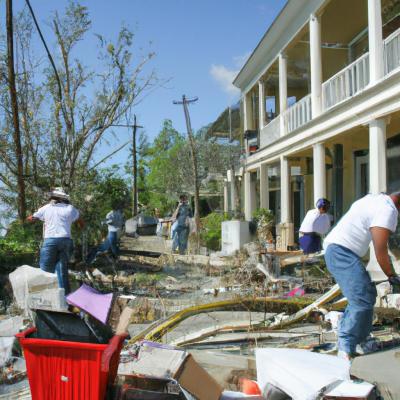The report, which surveyed over 600 flood victims from the 2022 floods, states that there should be an industry-wide, standardized national format of the information customers need to provide to support their claims. This would reduce the likelihood of incorrect or conflicting advice from other sources and prevent each policyholder from having to contact their company or broker for reassurance. This is particularly important given that last year's floods affected thousands of people across New South Wales and Queensland.
Providing Detailed Claim Checklists for Clients
The report also recommends that insurers provide "detailed and explicit" checklists outlining what customers need to do after a flood event. This advice should be made as clear, simple, and achievable as possible. Not only would consistent advice help policyholders, but it would also assist those providing assistance to victims. Insurers could issue fact sheets covering how to salvage different items and provide information on how to check if some white goods could be saved or continue to be used once sanitized and dried out.
The report found that there was immense waste and unnecessary disposal, and a willingness to discard everything to start anew, adding to victims' distress. Therefore, it is important to make victims aware of items that can be saved and the best methods to do so. The advice should avoid making assumptions about what can be saved or what is beyond salvage but provide practical instructions on how to save items of value.
Challenges Faced by Flood Victims Filing Insurance Claims
The report also found that documenting losses, delayed assessment, being "in limbo," and arguments about stormwater versus floodwater damage were frequent issues mentioned by residents in interviews relating to insurance claims. The report found that some residents without insurance were able to make decisions such as selling their home "much faster" than those involved in complicated and protracted claim and dispute processes with insurers. It also acknowledged the lack of choice and freedom when arranging repairs and reconstruction through their insurers. Approved suppliers were felt to be charging too much and "doing a poorer job."
The Need to Better Prepare for Future Events
The study affirms the need for the insurance industry to better prepare for possible future events that could be even worse than the last floods. Therefore, they need to make plans and contingencies that can improve surge capacity whenever such incidents occur. The report recommends that more advocacy roles and personal support services be provided to navigate the claims process. The industry should also consider commissioning reports examining their performance during natural disasters to efficiently manage coverage properly, especially regarding the shortages of materials and building trades.
Conclusion
Standardized and consistent advice from insurers regarding filing flood claims is essential for all policyholders to ensure they know what to do and what not to do when making a claim. It also ensures that inspectors provide the correct advice to the uneducated to avoid wastage and unnecessary disposal of viable items. Much preparation is required for future natural disasters, and insurers should provide more advocacy roles and personal support services to help victims navigate the claims process.
Published: Friday 5th May, 2023
Please Note: If this information affects you or is relevant to your circumstances, seek advice from a licensed professional.









